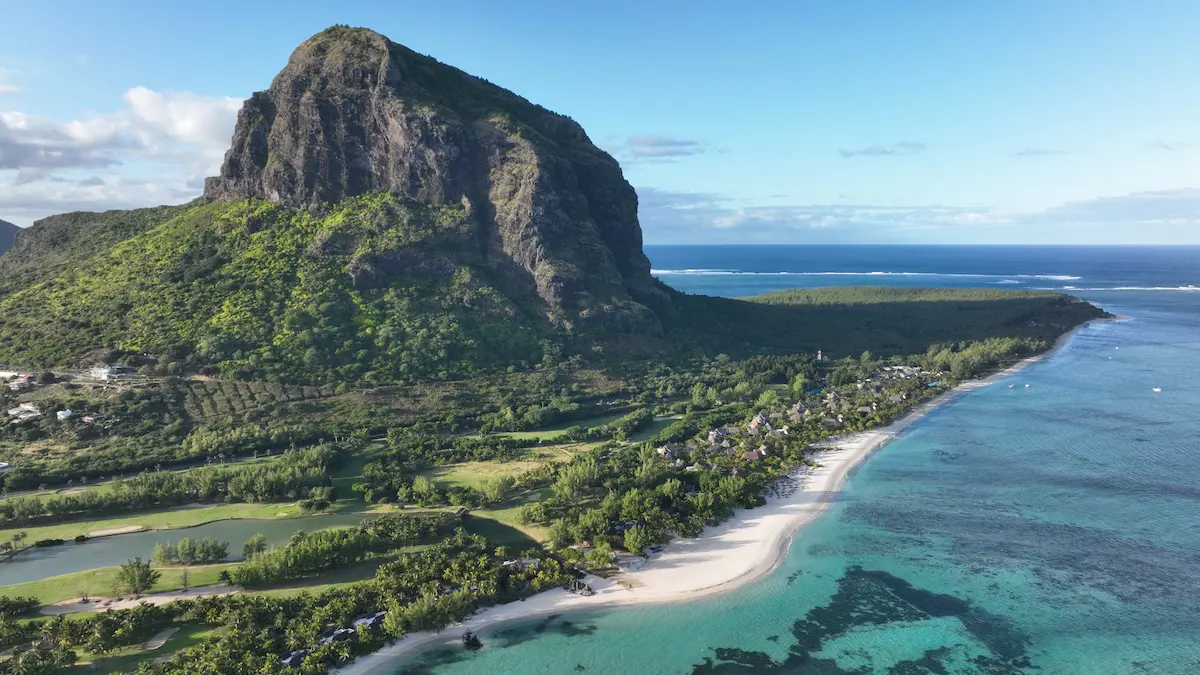At first glance, Mauritius with its white sandy beaches and turquoise-coloured lagoons appears to be an untouched piece of nature. It still is to a large extent, despite luxury tourism and climate change. Beachcomber Hotels, one of the oldest hotel groups on the island, has faced up to the situation and mastered it perfectly. A story about how the hotel group and tourists in this luxury paradise are working together to protect nature and strengthen the social fabric.
The operators of Beachcomber Hotels are no strangers to environmental and social governance (ESG for short). And has been for decades. When the first hotel was founded in 1952, this term did not even exist. But even back then, they were thinking about the long term, because the beauty and integrity of Mauritius should be preserved for future generations. Its founders had only one goal: to open a luxurious hotel that would be in harmony with nature and society and offer international guests an unforgettable stay.
Clean beaches and ocean protection
Mauritius is known for its breathtaking coastline and crystal-clear sea. However, climate change has also left its mark here. This makes it all the more important to protect the marine environment. The staff regularly clean the beaches of rubbish, and although they rarely find plastic waste, they do occasionally find beer cans and glass bottles washed up by the waves. Probably thrown overboard by guests on cruise ships. One reason for the relative cleanliness of the beaches is the commitment of the local fishermen, who traditionally protect the sea as it is their livelihood. Mauritius also has strict laws and high fines for littering - even on the streets.
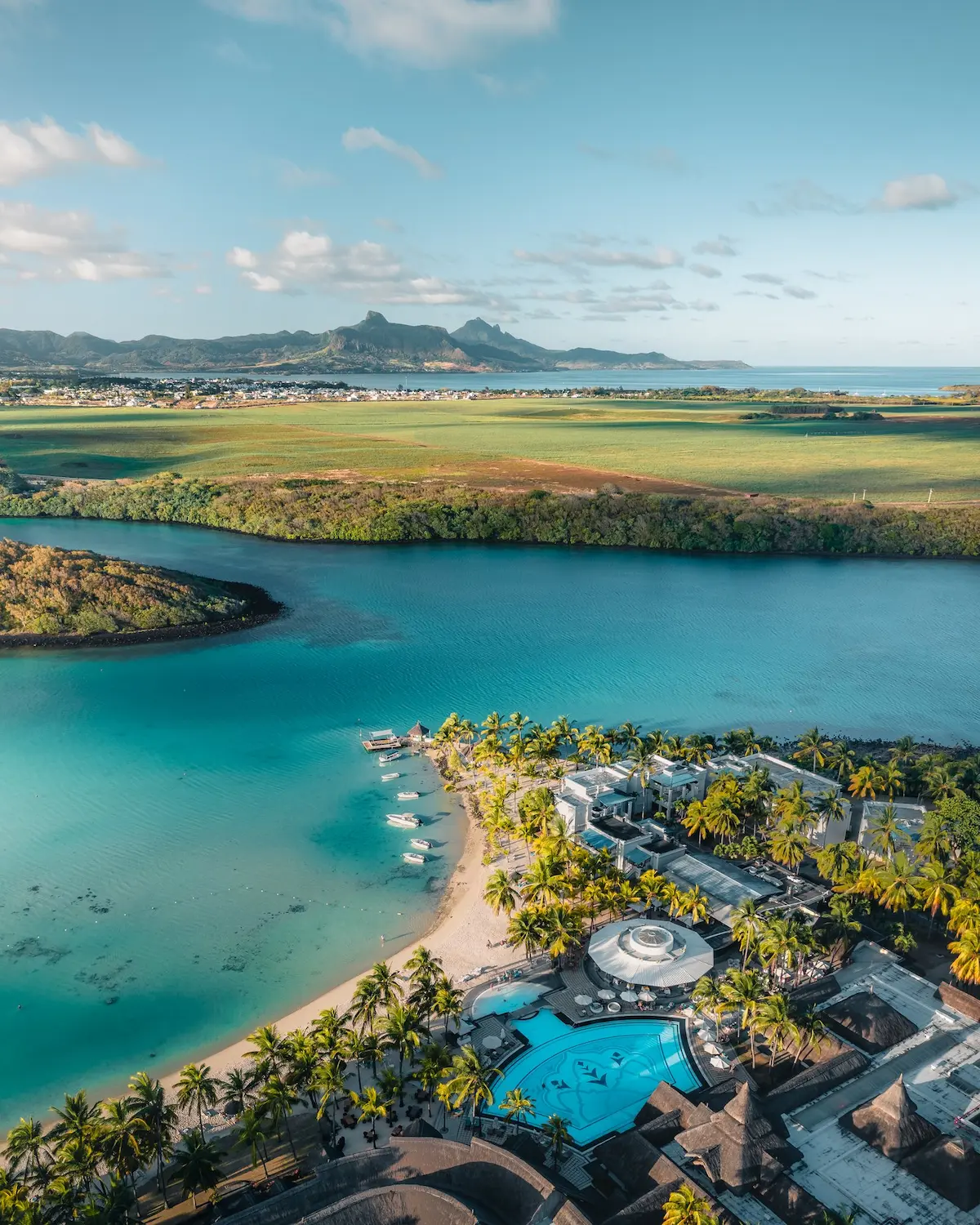
Water bottles yes, but made from sugar cane please
Avoiding waste is a key aspect of the sustainability strategy. Disposable bottles are completely avoided. A sustainable alternative to glass? Water bottles made from sugar cane, which can be composted. And the lids are recycled by local artists who use them to create works of art. There are also water refill stations in the hotels, which save up to 700 bottles per month.
Sustainable agriculture and beekeeping
Since 2018, the hotels have been working with professional beekeepers to run beehives in the extensive hotel gardens. Etienne de Senneville is one of the beekeepers. Today, honeybees are a central part of the hotel group's environmental strategy. Bees are not only crucial for biodiversity, but also for sustainability. They play an essential role in the natural cycle and ensure the pollination of numerous plant species that grow in the extensive gardens of Beachcomber Hotels.
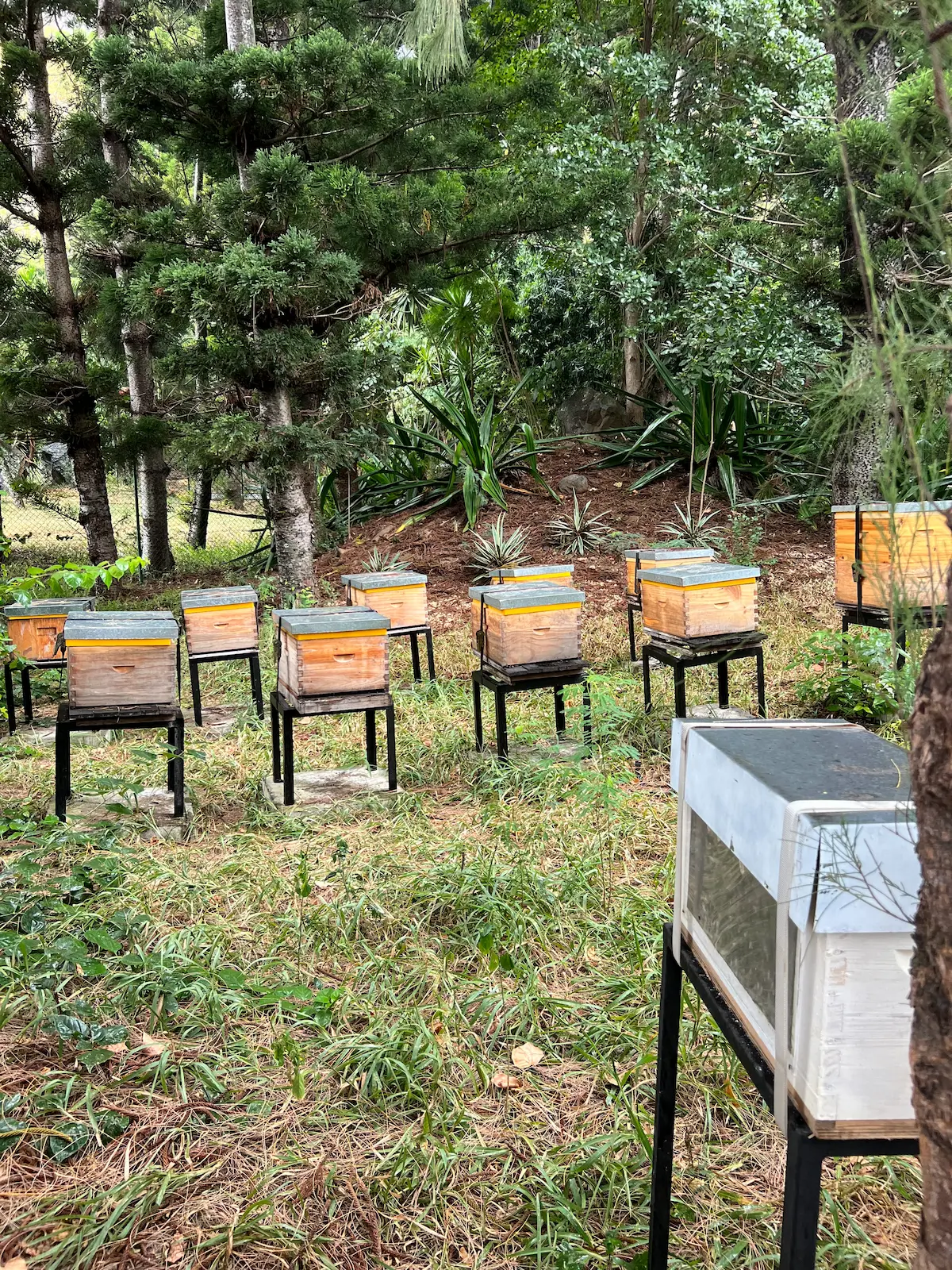
There are beehives in every hotel in the group. Two different bee species are native here: the small black bee, originally from Mauritius, which is considered aggressive and swarming, and the Italian queen bee, which has been bred since 2010. This crossing has resulted in a hybrid species that has adapted perfectly to local conditions.
Each plant harbours up to 45,000 bees, which contribute to pollination. Hotel guests can even enjoy the sweet yield of these bees, as up to 450 kilograms of multifloral honey are produced each year. The beehives are also part of a larger ecological commitment that favours the promotion of natural flora - including acacia, eucalyptus and tamarind.
Local craftsmanship and social commitment
The hotel group is aware of its social responsibility. In 2006, the group founded a studio to support local artists and craftspeople. Here, artists work with materials such as wood, coconuts and clay to create handmade works of art. One highlight is the hand drum, known as a ravan. It is made from cowhide and was played by slaves for centuries. A blind artist who makes rattan artworks is particularly impressive. The studio not only offers space for creative work, but also for social interaction. Beachcomber is fully funding the project, demonstrating that sustainability not only affects the environment, but also the people who live on the island. The works of art produced can also be found in the rooms as accessories or in the hotel shops. What is surprising is that they are no more expensive than those bought directly from the studio. It's not the earnings that count here, but the endeavour to bring the island's diverse handicrafts to the world.
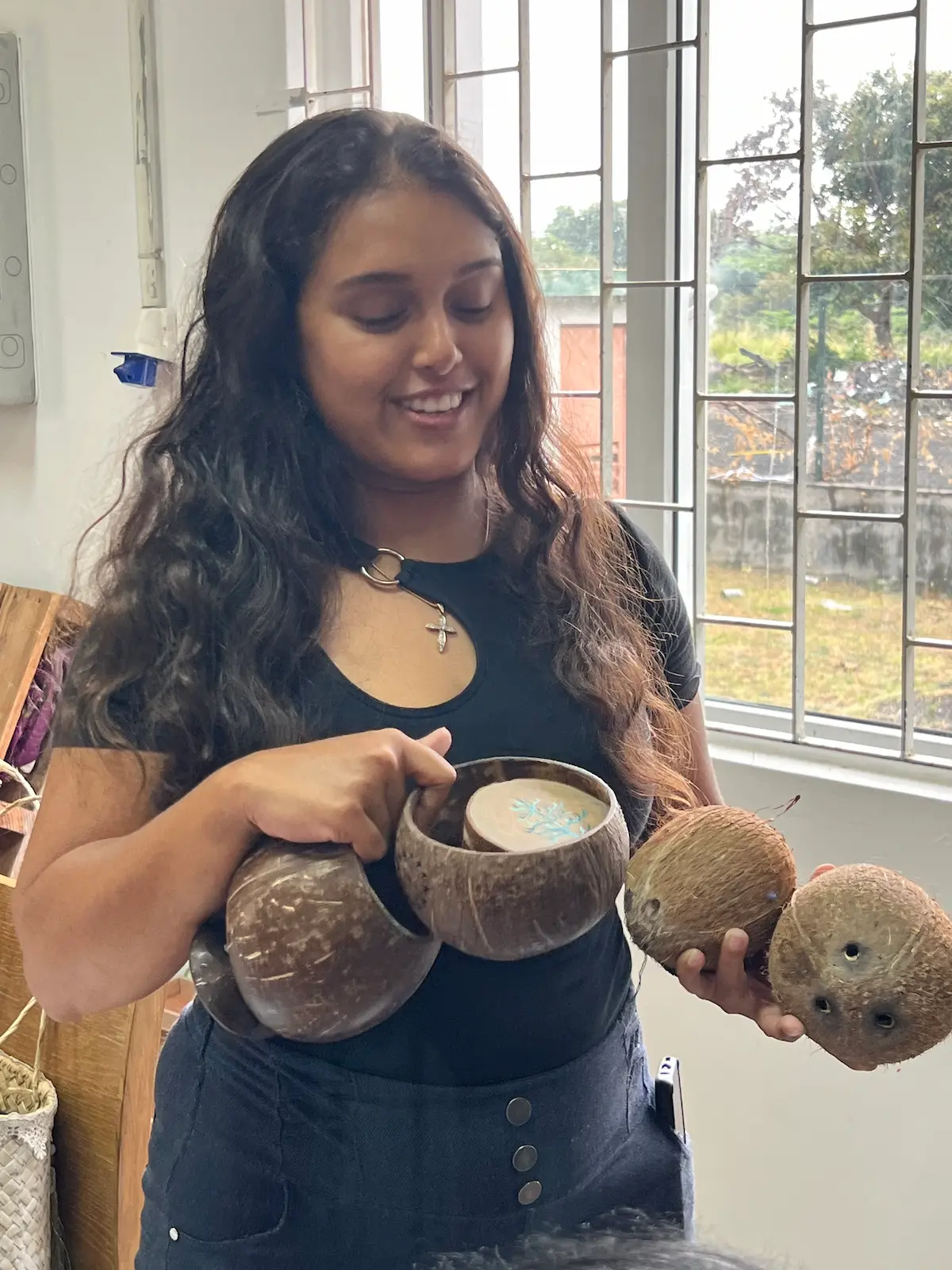
Another notable project is the support of local communities through educational programmes. For over 20 years, Beachcomber has enabled disadvantaged young people to enter the hotel industry through training and internships. The success of these initiatives is exemplified by Lyndon, a former street kid who became a chef through the programme and now owns his own home. He left school at the age of 12 and could neither read nor write. These success stories are a source of hope for many people in Mauritius and show that commitment and practical help can increase the chances of a better life.
Solar systems and water management
Beachcomber Hotels are also pioneers when it comes to energy efficiency. For example, solar thermal systems with over 12,500 tubes are used to cover around 10 % of the facilities' energy requirements. The hotel group is also committed to water efficiency: recycled water has been used for garden irrigation since the 1990s. A small but significant contribution to conserving resources is the reduction in the use of towels, which has been reduced by 50% thanks to the cooperation of guests. This saves thousands of litres of water - a much-needed resource on the island.
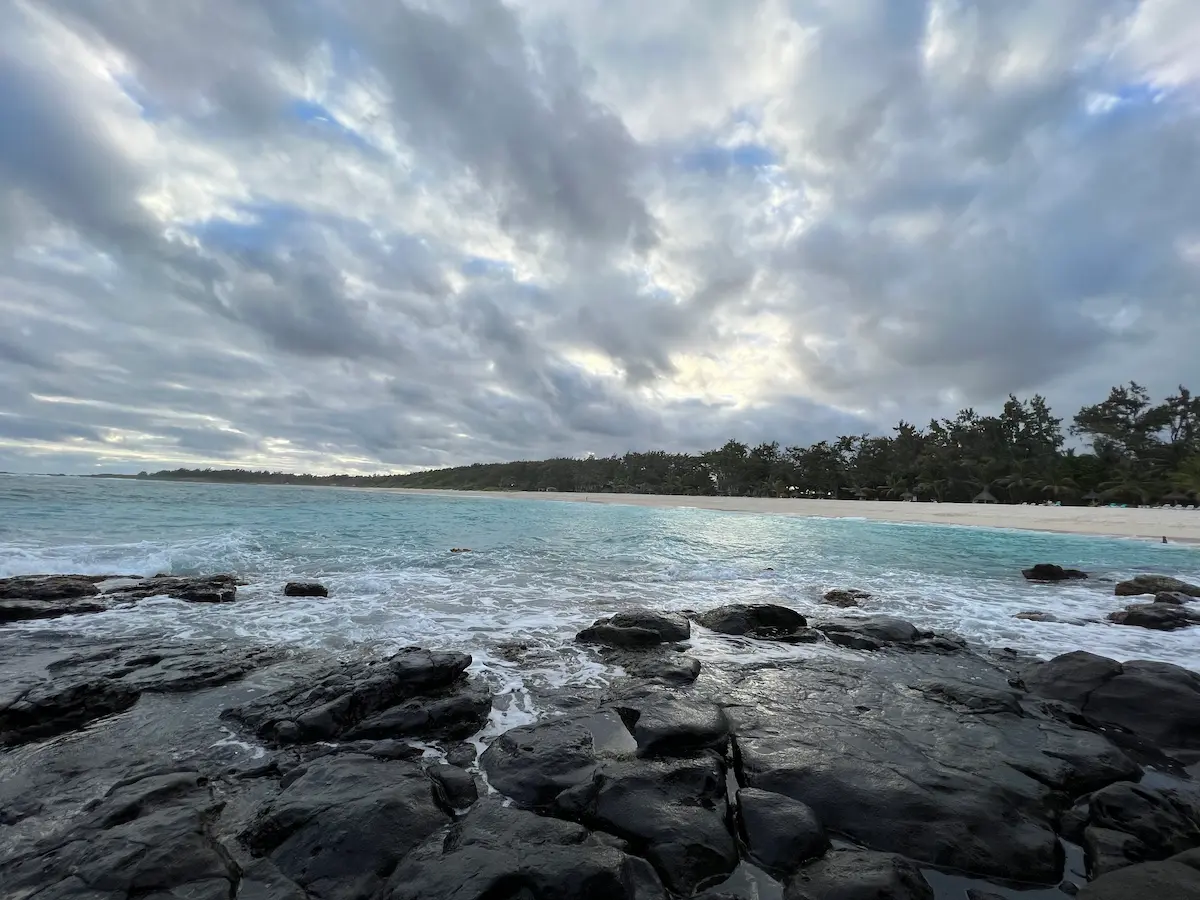
Climate change as a challenge
Despite all efforts, Mauritius faces major challenges. With water temperatures of up to 31 degrees in the lagoon, climate change is already having a significant impact on the marine environment. This is leading to coral bleaching, one of the most serious threats to the marine ecosystem. But there is hope: Beachcomber Hotels have installed special scaffolding to encourage coral regrowth. The efforts are already showing initial success and there are signs that some corals are recovering and adapting to the rising temperatures.
Sustainable handling of food
Beachcomber Hotels is actively committed to reducing food waste, and the collaboration with the NGO Foodwise plays a central role in this. Specific measures are taken to minimise waste, both to protect the environment and to help the local community.
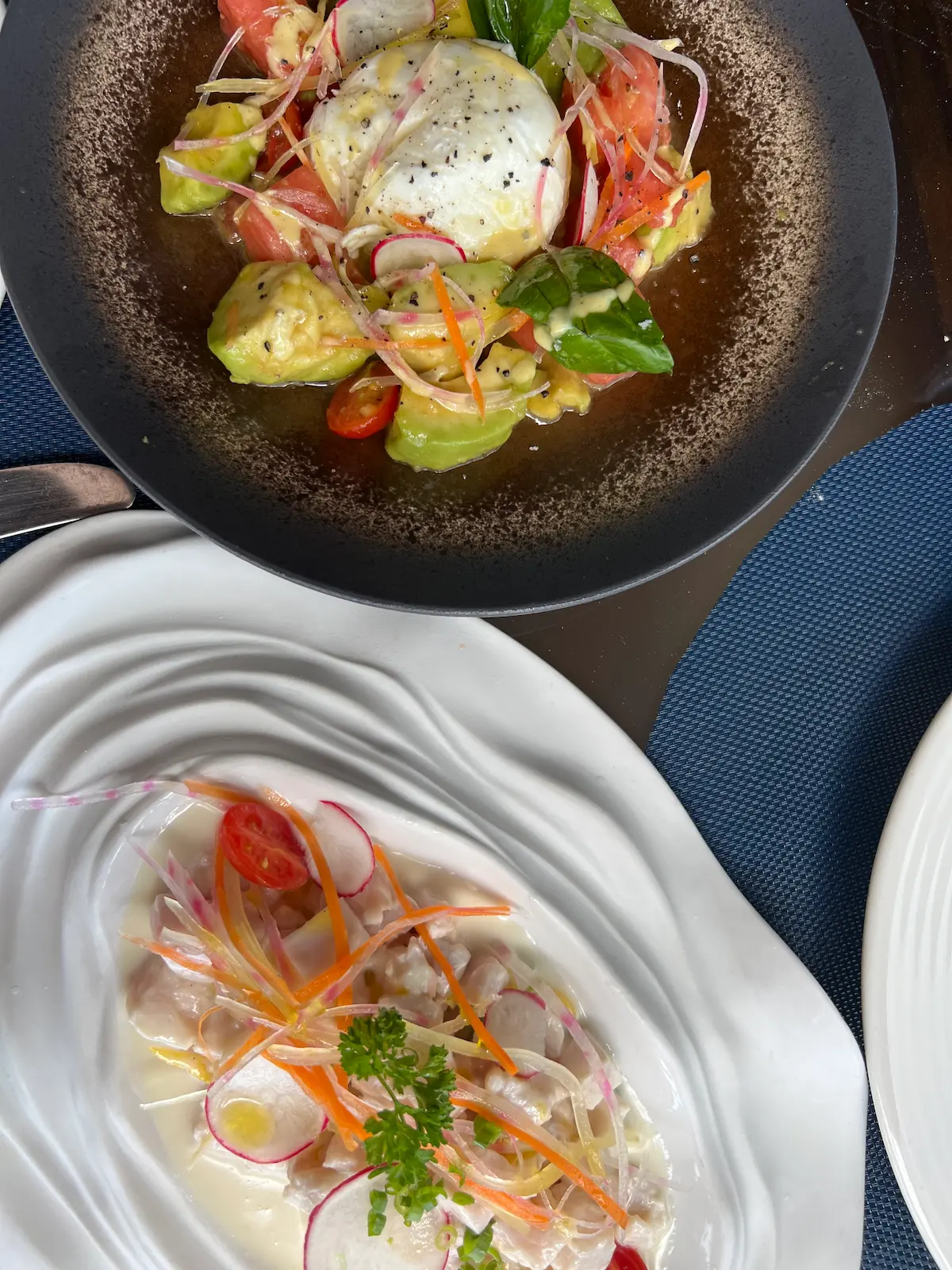
Foodwise has been working closely with the hotel group for years and has made significant progress together with the Mauritian government. Between 2018 and March 2023, an impressive 1,100 tonnes of food waste was collected and put to good use. Given that an estimated 279 kilograms of food is wasted every minute worldwide, this achievement is an important step towards sustainable food management in Mauritius.
From the kitchen to the guests
At Beachcomber Hotels, most food waste comes from the buffets and guests' plates. Instead of simply throwing this waste away, the hotel has developed an ingenious system to reuse it sensibly. Food that is still in good condition is distributed to schools and charitable organisations to help feed the local population.
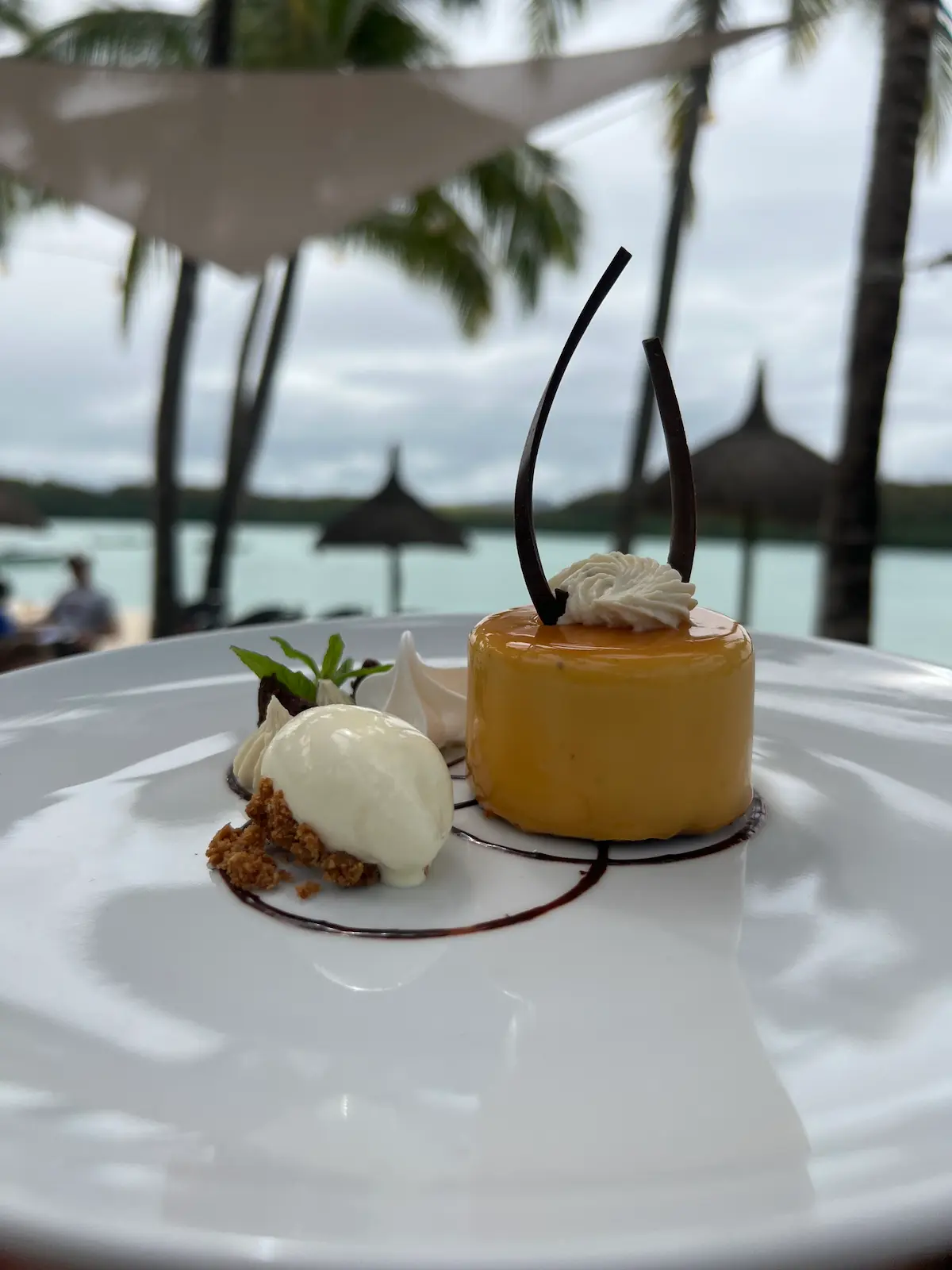
What all the Beachcomber Group resorts had in common was the unique cuisine, as presented to us by master chef Moorigen Coopen at Shandrani. A mix of Africa, India, Korea and China, paired with a little Europe, tantalised our taste buds.
Creative recycling in the kitchen
The Beachcomber kitchens also use creative methods to utilise food. Leftover vegetables, for example, are turned into chutneys the next day, and leftover bread is made into pudding. These techniques are not only sustainable, but also offer guests culinary delights made from fresh, locally sourced ingredients. There are other uses for waste that is no longer suitable for human consumption, such as animal feed. These organic leftovers are passed on to local farmers and livestock owners who use them as feed for their animals. This not only reduces waste, but also helps local agriculture.
Places of experience and indulgence
We were fascinated by the urban locations such as the Hotel Dinarobin Beachcomber Golf Resort & Spa at the foot of the island's most famous mountain, the Marne Brabant. Today, it symbolises the end of slavery and is a UNESCO World Heritage Site. Guests should not miss a yoga class with the friendly Mohini Purbhoo before their massage.
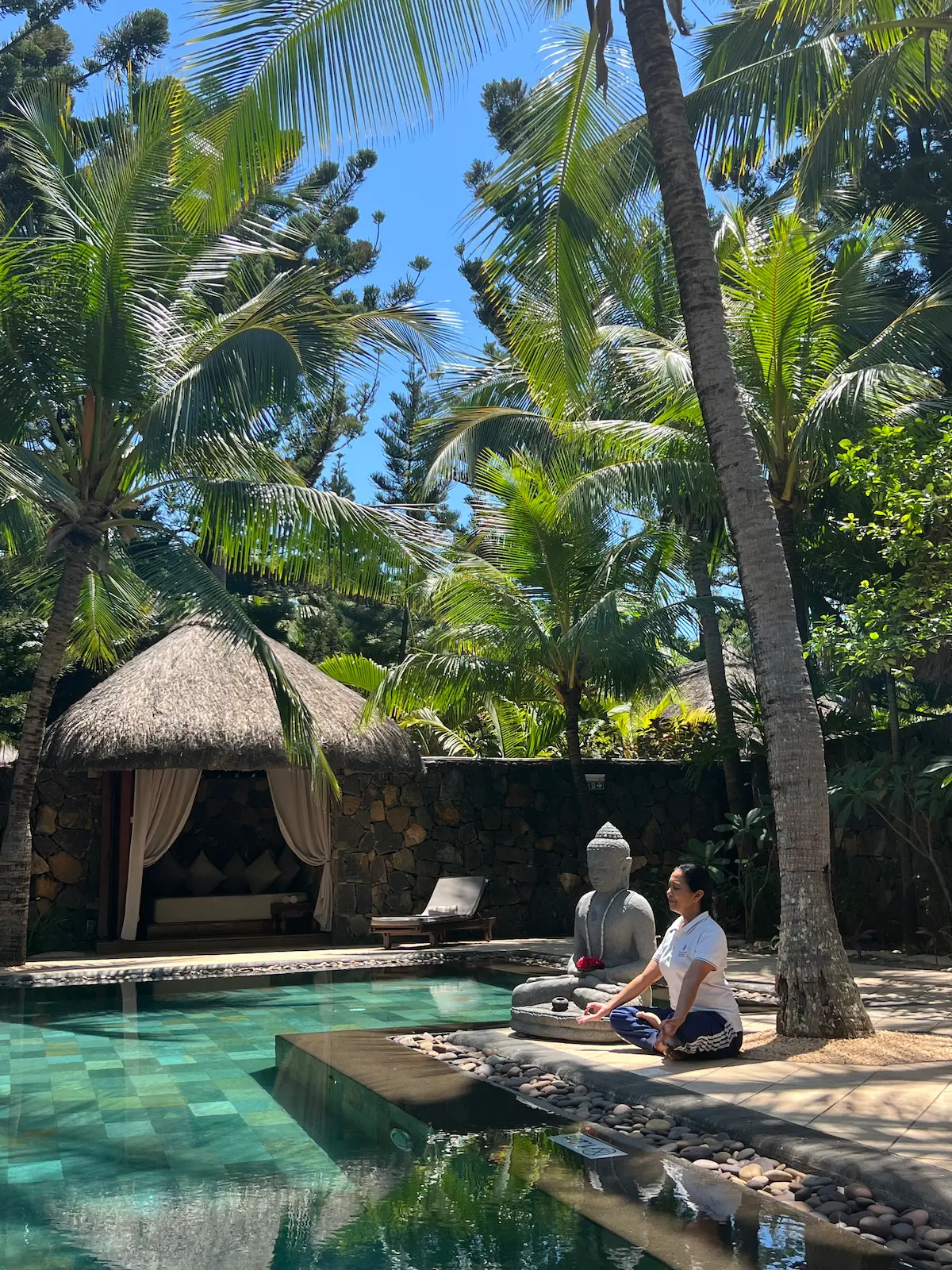
We experienced marvellous sunsets at the Trou aux Biches Beachcomber Golf Resort & Spa and in Shandrani there were the most beautiful beaches that couldn't be more different - from calm waters in the lagoon to lively waves on the open sea beach.
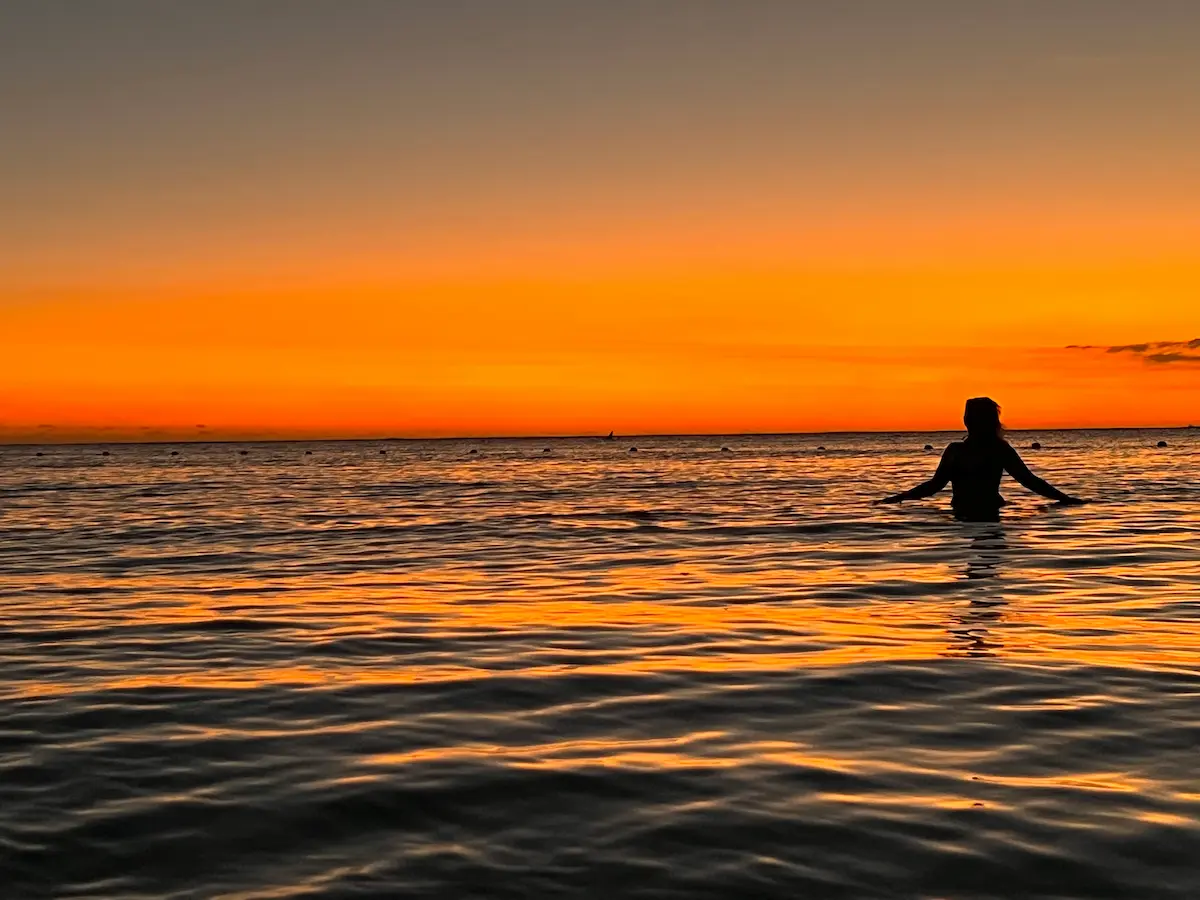
And of course the paradisiacal gardens should not go unmentioned. Here, too, attention has been paid to sustainability: You will find mainly native flora and fauna, as they require less water, such as the beautiful banyan tree. The oldest is 120 years old and therefore older than any hotel in the Beachcomber Group. Here, the design of the garden has been adapted to it so that it is not damaged. A paradise on all levels.
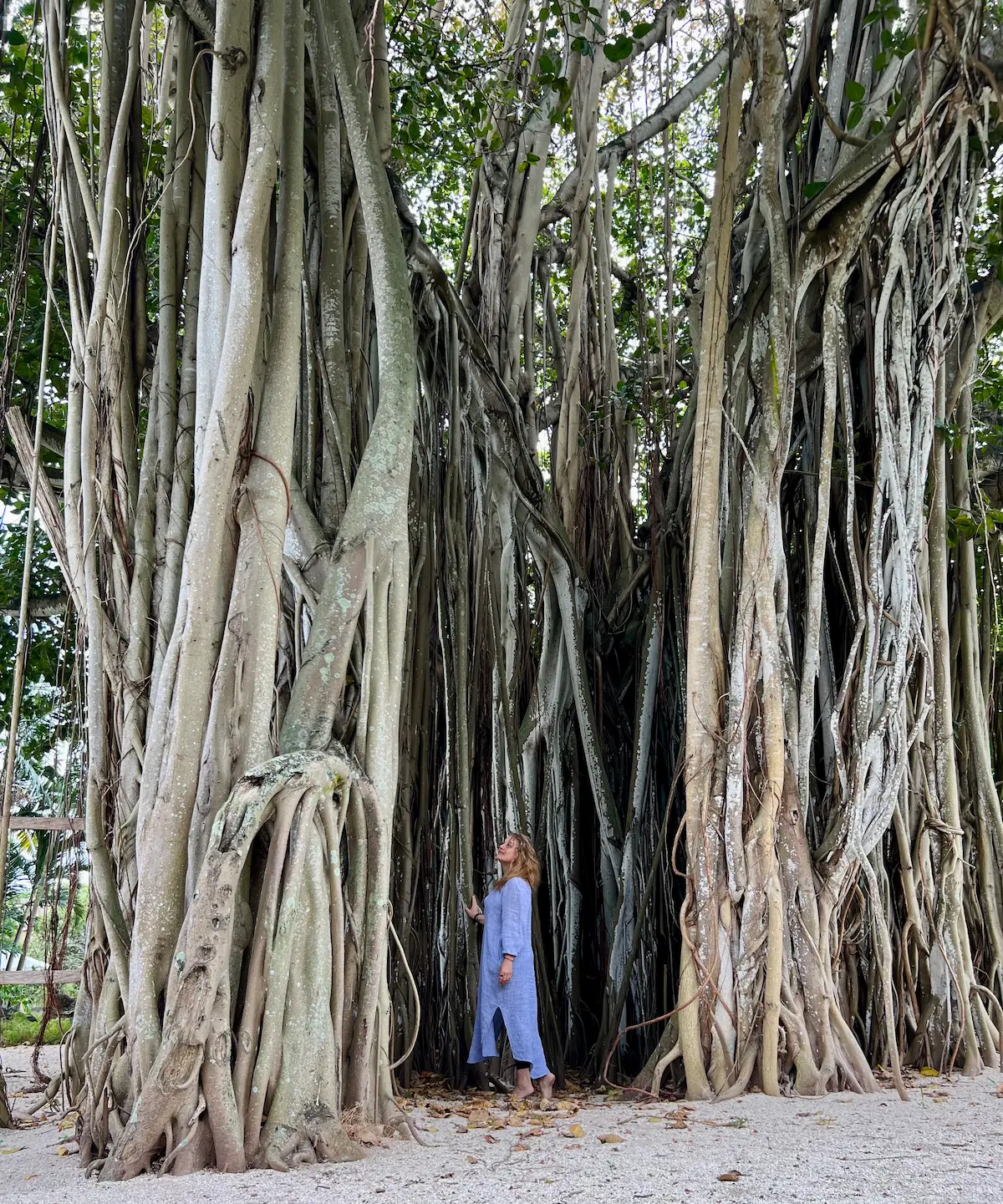
Conclusion:
The Beachcomber Group is an example of how luxury tourism can form a symbiosis with sustainability and environmental protection without neglecting high standards.
Text: Mirella Sidro
Images:
Lead image: Dinarobin Beachcomber Golf Resort & Spa
Image 1: Shandrani Beachcomber Golf Resort & Spa
All other pictures: Mirella Sidro

